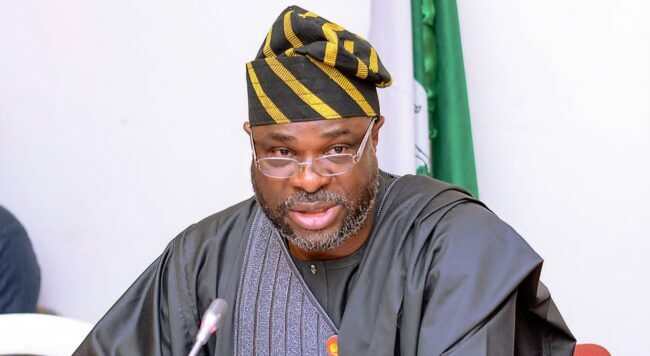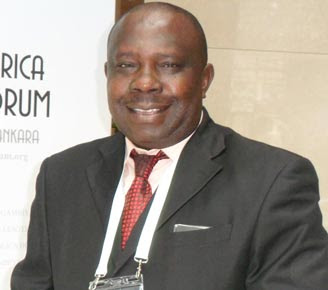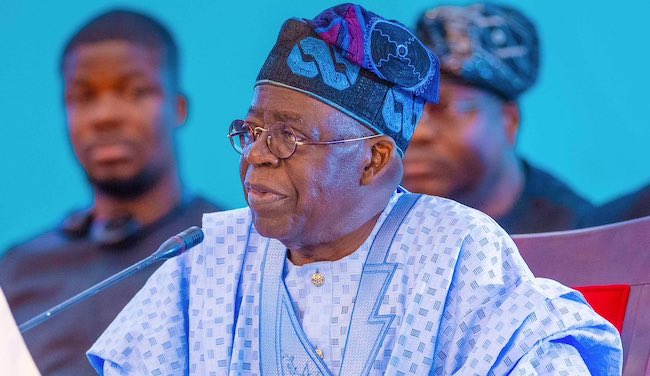The Administrator of the National Judicial Institute (NJI), Salisu Abdullahi, has urged journalists and the judiciary to work collaboratively to strengthen public trust in Nigeria’s democratic institutions.
Speaking on Monday at the opening of the 2024 Symposium for Media and Judicial Correspondents on Navigating Legal Complexities in Court Reporting in Abuja, Mr Abdullahi, emphasised the critical roles of the judiciary and the media in upholding and sustaining democracy.
“In a democracy, you need to have a strong judicial system…and you need a free press,” Mr Abdullahi said.
He added, “The foregoing pays homage to the fact that both the judiciary and media are bulwarks in every democratic setting, thus making their existence a necessity for the continued exercise and survival of democratic liberties.”
He noted that the relationship between the two institutions must be built on mutual respect, professionalism, and a shared commitment to truth.
“This symposium offers a platform to bridge gaps, improve communication, and build trust between our institutions,” he said.
The two-day ongoing event (Monday and Tuesday) has the theme, ‘Building Stronger Media and Judiciary Collaboration.’
Nigerians need credible journalism. Help us report it.
Support journalism driven by facts, created by Nigerians for Nigerians. Our thorough, researched reporting relies on the support of readers like you.
Help us maintain free and accessible news for all with a small donation.
Every contribution guarantees that we can keep delivering important stories —no paywalls, just quality journalism.
The symposium features discussions on topics critical to judicial reporting, including judicial communication and correspondence, reporting on vulnerable persons in legal proceedings, professional conduct within judicial settings, and interpreting and reporting judicial rulings.
Ethics and professionalism in media reporting
Mr Abdullahi called on journalists to adhere strictly to ethical standards to report judicial matters with fairness, accuracy, and responsibility.
“However, it behoves the media to chart the course for this partnership by entrenching and enforcing certain measures and standards in the performance of their functions as the “watchdog of the society,” he stated.
He also urged regulatory bodies, particularly the National Association of Judiciary Correspondents (NAJUC), to maintain discipline among members and uphold excellence in court reporting.
“Further, keen attention must be paid to the ethical code and standards that govern your profession and the contravention of these guiding principles must be frowned upon, with necessary sanctions following,” he stressed.
Mr Abdullahi expressed confidence that these discussions, led by seasoned experts and resource persons, would equip participants with practical insights to enhance their work.
In his welcome remark, the NAJUC chairman, Lawal Kayode, thanked the leadership of NJI for their immense support towards court reporting by training journalists.
He assured the NJI Administrator that the workshop would be highly valued, urging reporters to apply the knowledge and skills gained during the sessions in their professional work.
The event was attended by journalists from the 36 states of Nigeria, including the Federal Capital Territory (FCT), as well as judiciary information officers from all divisions.
About NJI
NJI was established by Decree No. 28 of 1991 as amended by Decree No.15 of 1999, now Act N55 Laws of the Federation of Nigeria; 2004.
The law empowers the institute to conduct courses for all categories of judicial officers and their supporting staff with a view to expanding and improving their overall knowledge and performances in their different sections of service.
It was also established to provide continuing education for all categories of judicial officers by undertaking, organizing, conducting and facilitating study courses, lectures, seminars, workshops, conferences and other programs related to judicial education.
The law also mandates the institute to organise once in two years a conference for all Nigerian Judges of Superior and Lower Courts respectively
NJI’s day-to-day activities are run by the administrator.
But it is managed by a Board of Governors, which is composed of the Chief Justice of Nigeria as Chairman, Attorney-General of the Federation and Minister of Justice, the most Senior, Justice of the Supreme Court, President of the Court of Appeal, Chief Judge of the Federal High Court, Chief Judges of all the 36 States and the Federal Capital Territory, two Grand Kadis of Sharia Courts of Appeal and two Presidents of Customary Courts of Appeal, respectively, among other members.
Support PREMIUM TIMES' journalism of integrity and credibility
At Premium Times, we firmly believe in the importance of high-quality journalism. Recognizing that not everyone can afford costly news subscriptions, we are dedicated to delivering meticulously researched, fact-checked news that remains freely accessible to all.
Whether you turn to Premium Times for daily updates, in-depth investigations into pressing national issues, or entertaining trending stories, we value your readership.
It’s essential to acknowledge that news production incurs expenses, and we take pride in never placing our stories behind a prohibitive paywall.
Would you consider supporting us with a modest contribution on a monthly basis to help maintain our commitment to free, accessible news?
TEXT AD: Call Willie - +2348098788999

 18 hours ago
4
18 hours ago
4














